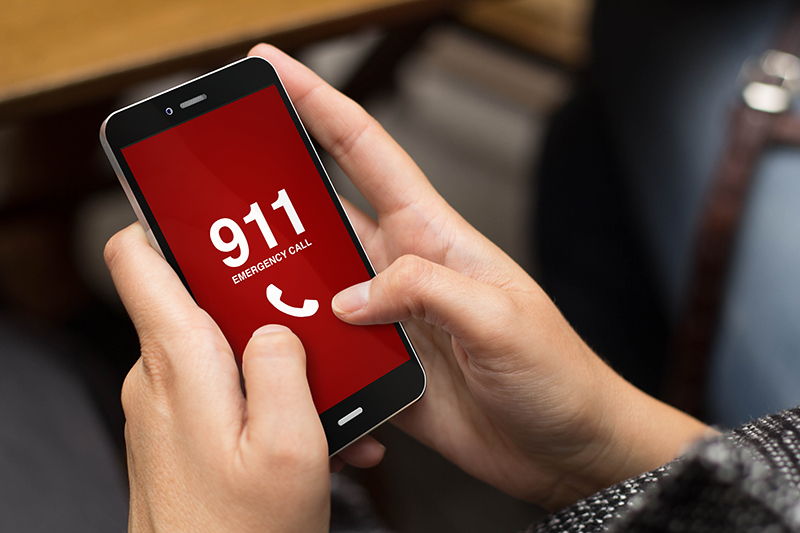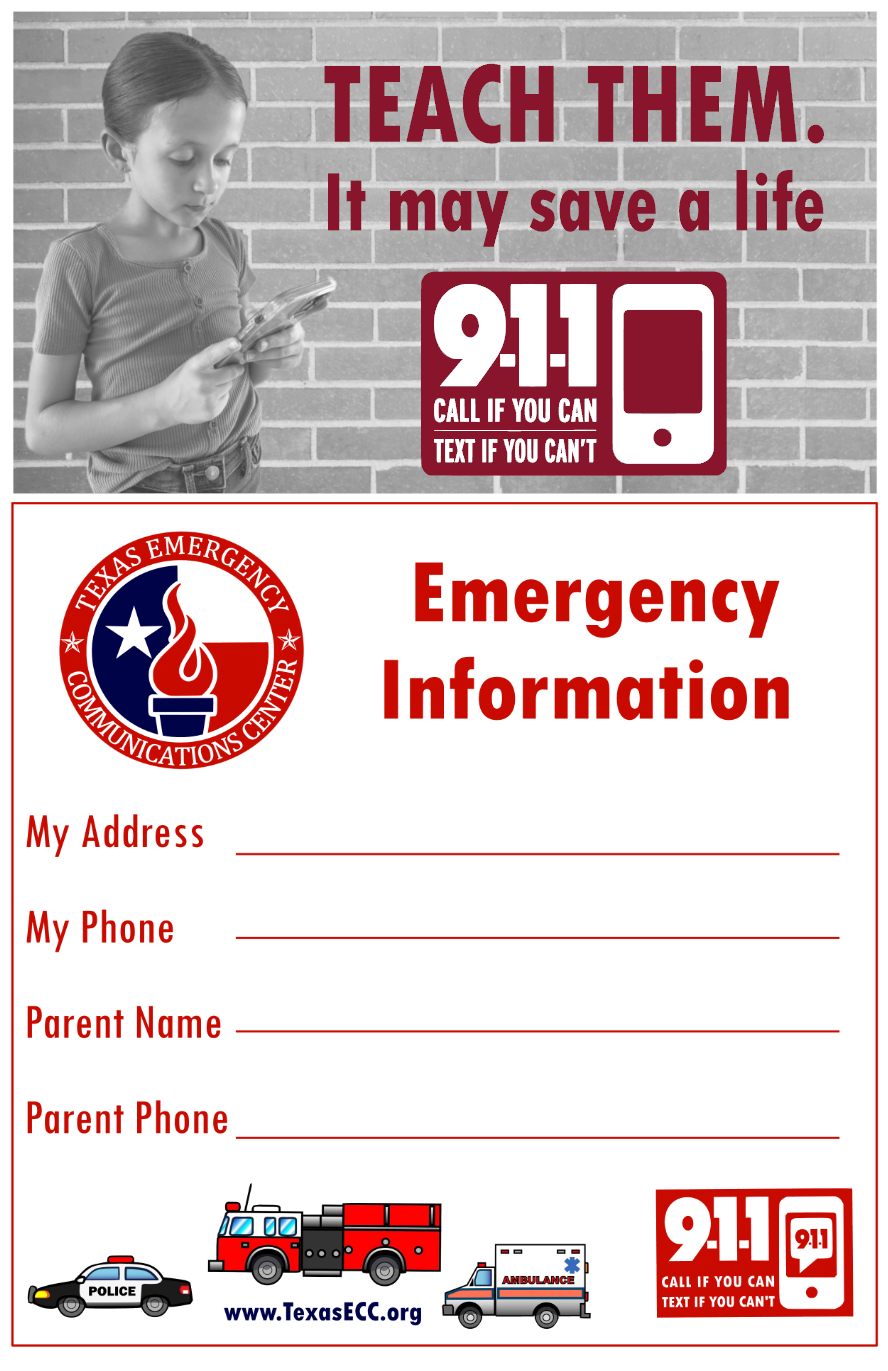
Greater Harris County 9-1-1 Emergency Network Offers 9-1-1 Tips
When should you call 9-1-1?
Only contact 9-1-1 in an emergency situation. An emergency is any situation that requires immediate assistance from the police/sheriff, the fire department or emergency medical services. If you are ever in doubt of whether a situation is an emergency you should call 9-1-1. It’s better to be safe and let the 9-1-1 call taker determine if you need emergency assistance.
| Examples of When to Call 9-1-1 | Do Not Call 9-1-1 |
| Medical emergencies | For information |
| Heart attack or stroke | When the power is out |
| House fire | To report a broken fire hydrant |
| Domestic violence | When your water pipes burst |
| Burglary or theft in progress | To get a ride for doctor's appointment |
| Car accident with life threatening injuries | For paying tickets |
| Suspicious activities | For your pet |
| Anything else that seems like an emergency | To report potholes in the road |
Stay calm and remember these steps.
- Every second counts in emergency. Don’t hesitate to contact 9-1-1 first during an emergency for police, fire or medical assistance.
- Get to a safe location before calling. If you are calling to report a fire, exit the burning building before calling.
- Stay calm and answer all questions about your emergency.
- State what help you need: police, fire or EMS/medical.
- State your address, describe your location as completely as possible using cross streets or landmarks.
- Stay on the line — do not hang up until the operator says it’s OK.
Teach them - it may save a life.
Texting 9-1-1
Text-to-9-1-1 is a valuable service to be used in an emergency situation when it is not possible to make a voice call. Voice calls are still the best and fastest way to contact 9-1-1. Texting is recommended ONLY when you cannot make a voice call, which includes those who are are deaf/hard-of-hearing or speech impaired, in a medical emergency that renders speech, or when it is not safe to talk.
To text 9-1-1, enter the numbers “911” in the “To” or “Recipient” field. The first text to 9-1-1 should be short, include the location of the emergency, and ask for police, fire or medical help. Then, push the “Send” button and answer questions and follow instructions from the 9-1-1 call taker. Remember to text in simple words – no abbreviations or slang.
GHC 9-1-1 territory and some parts of the U.S. for subscribers of all four major wireless carriers and resellers of AT&T, Sprint, T-Mobile and Verizon. If texting to 9-1-1 is not available in your area, or is temporarily unavailable, you will get a reply to contact 9-1-1 by voice or relay services. To find out more about text to 9-1-1 coverage areas check with the FCC or your local authorities (https://www.fcc.gov/general/9-1-1-master-psap-registry). Only subscribers with an active text or data plan can send to text-to-9-1-1.
-
General Information about Text-to-9-1-1: https://www.youtube.com/watch?v=RlM3PBsqqvA
- How to Text 9-1-1: https://www.youtube.com/watch?v=j509tezozmY
- Important Facts About Text-to-9-1-1: https://www.youtube.com/watch?v=UD31BrwEDwE
Source: GHC 9-1-1




